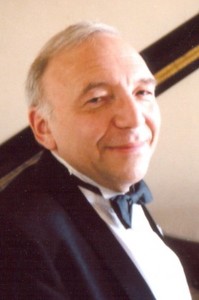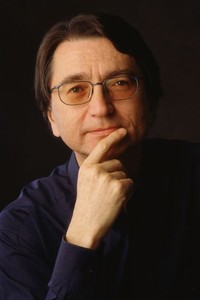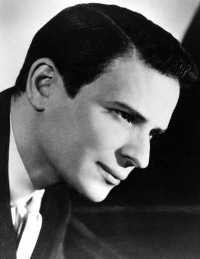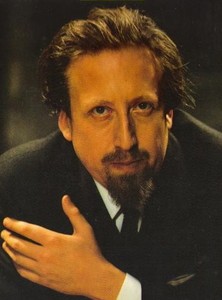
Lazar Naumovich Berman |
Lazar Berman

For those who love the concert scene, reviews of Lazar Berman’s concerts in the early and mid-seventies will be of undoubted interest. The materials reflect the press of Italy, England, Germany and other European countries; many newspaper and magazine clippings with the names of American critics. Reviews – one more enthusiastic than the other. It tells about the “overwhelming impression” that the pianist makes on the audience, about “indescribable delights and endless encores.” A musician from the USSR is a “real titan,” writes a certain Milanese critic; he is a “keyboard magician,” adds his colleague from Naples. The Americans are the most expansive: a newspaper reviewer, for example, “almost choked with amazement” when he first met Berman – this way of playing, he is convinced, “is possible only with an invisible third hand.”
Meanwhile, the public, familiar with Berman since the beginning of the fifties, got used to treat him, let’s face it, calmer. He (as it was believed) was given his due, given a prominent place in the pianism of today – and this was limited. No sensations were made from his clavirabends. By the way, the results of Berman’s performances on the international competition stage did not give rise to sensations. At the Brussels competition named after Queen Elisabeth (1956), he took fifth place, at the Liszt Competition in Budapest – third. “I remember Brussels,” says Berman today. “After two rounds of the competition, I was quite confidently ahead of my rivals, and many predicted me then the first place. But before the third final round, I made a gross mistake: I replaced (and literally, at the last moment!) One of the pieces that were in my program.
Be that as it may – the fifth and third places … Achievements, of course, are not bad, although not the most impressive.
Who is closer to the truth? Those who believe that Berman was almost rediscovered in the forty-fifth year of his life, or those who are still convinced that the discoveries, in fact, did not happen and there are no sufficient grounds for a “boom”?
Briefly about some fragments of the pianist’s biography, this will shed light on what follows. Lazar Naumovich Berman was born in Leningrad. His father was a worker, his mother had a musical education – at one time she studied at the piano department of the St. Petersburg Conservatory. The boy early, almost from the age of three, showed extraordinary talent. He carefully selected by ear, well improvised. (“My first impressions in life are connected with the piano keyboard,” says Berman. “It seems to me that I never parted with it … Probably, I learned to make sounds on the piano before I could speak.”) Around these years, he took part in review-competition, called the “city-wide competition of young talents.” He was noticed, singled out from a number of others: the jury, chaired by Professor L.V. Nikolaev, stated “an exceptional case of an extraordinary manifestation of musical and pianistic abilities in a child.” Listed as a child prodigy, four-year-old Lyalik Berman became a student of the famous Leningrad teacher Samariy Ilyich Savshinsky. “An excellent musician and efficient methodologist,” Berman characterizes his first teacher. “Most importantly, the most experienced specialist in working with children.”
When the boy was nine years old, his parents brought him to Moscow. He entered the Central Musical School of Ten Years, in the class of Alexander Borisovich Goldenweiser. From now until the end of his studies – a total of about eighteen years – Berman almost never parted with his professor. He became one of Goldenweiser’s favorite students (in difficult wartime, the teacher supported the boy not only spiritually, but also financially), his pride and hope. “I learned from Alexander Borisovich how to really work on the text of a work. In class, we often heard that the author’s intention was only partially translated into musical notation. The latter is always conditional, approximate… The composer’s intentions need to be unraveled (this is the mission of the interpreter!) and reflected as accurately as possible in the performance. Alexander Borisovich himself was a magnificent, surprisingly insightful master of the analysis of a musical text – he introduced us, his pupils, to this art … “
Berman adds: “Few people could match our teacher’s knowledge of pianistic technology. Communication with him gave a lot. The most rational playing techniques were adopted, the innermost secrets of pedaling were revealed. The ability to outline a phrase in relief and convex came – Alexander Borisovich tirelessly sought this from his students … I outplayed, studying with him, a huge amount of the most diverse music. He especially liked to bring to class the works of Scriabin, Medtner, Rachmaninoff. Alexander Borisovich was a peer of these wonderful composers, in his younger years he often met with them; showed their plays with special enthusiasm … “
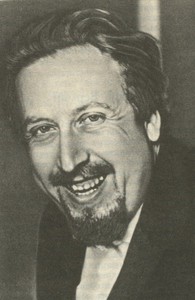
Once Goethe said: “Talent is diligence”; from an early age, Berman was exceptionally diligent in his work. Many hours of work at the instrument – daily, without relaxation and indulgence – became the norm of his life; once in a conversation, he threw the phrase: “You know, I sometimes wonder if I had a childhood …”. Classes were supervised by his mother. An active and energetic nature in achieving her goals, Anna Lazarevna Berman actually did not let her son out of her care. She regulated not only the volume and systematic nature of her son’s studies, but also the direction of his work. The course rested mainly on the development of virtuoso technical qualities. Drawn “in a straight line”, it remained unchanged for a number of years. (We repeat, acquaintance with the details of artistic biographies sometimes says a lot and explains a lot.) Of course, Goldenweiser also developed the technique of his students, but he, an experienced artist, specially solved problems of this kind in a different context – in the light of broader and more general problems. . Returning home from school, Berman knew one thing: technique, technique …
In 1953, the young pianist graduated with honors from the Moscow Conservatory, a little later – postgraduate studies. His independent artistic life begins. He tours the USSR, and later abroad. In front of the audience is a concert performer with an established stage appearance that is only inherent to him.
Already at this time, no matter who spoke about Berman – a colleague by profession, a critic, a music lover – one could almost always hear how the word “virtuoso” was inclined in every way. The word, in general, is ambiguous in sound: sometimes it is pronounced with a slightly disparaging connotation, as a synonym for insignificant performing rhetoric, pop tinsel. Bermanet’s virtuosity – one must be clear about this – leaves no room for any disrespectful attitude. She is – phenomenon in pianism; this happens on the concert stage only as an exception. Characterizing it, willy-nilly, one has to draw from the arsenal of definitions in superlatives: colossal, enchanting, etc.
Once A. V. Lunacharsky expressed the opinion that the term “virtuoso” should not be used in a “negative sense”, as is sometimes done, but to refer to “an artist of great power in the sense of the impression that he makes on the environment that perceives him …” (From the speech of A. V. Lunacharsky at the opening of a methodological meeting on art education on April 6, 1925 // From the history of Soviet musical education. – L., 1969. P. 57.). Berman is a virtuoso of great power, and the impression he makes on the “perceiving environment” is indeed great.
Real, great virtuosos have always been loved by the public. Their playing impresses the audience (in Latin virtus – valor), awakens the feeling of something bright, festive. The listener, even the uninitiated, is aware that the artist, whom he now sees and hears, does with the instrument what only very, very few can do; it is always met with enthusiasm. It is no coincidence that Berman’s concerts most often end with a standing ovation. One of the critics, for example, described the performance of a Soviet artist on American soil as follows: “at first they applauded him while sitting, then standing, then they shouted and stamped their feet with delight …”.
A phenomenon in terms of technology, Berman remains Berman in that that he plays. His performing style has always looked especially advantageous in the most difficult, “transcendental” pieces of the piano repertoire. Like all born virtuosos, Berman has long gravitated toward such plays. In the central, most prominent places in his programs, the B minor sonata and Liszt’s Spanish Rhapsody, the Third Concerto of Rachmaninov and Prokofiev’s Toccat, Schubert’s The Forest Tsar (in the famous Liszt transcription) and Ravel’s Ondine, octave etude (op. 25 ) by Chopin and Scriabin’s C-sharp minor (Op. 42) etude… Such collections of pianistic “supercomplexities” are impressive in themselves; even more impressive is the freedom and ease with which all this is played by the musician: no tension, no visible hardships, no effort. “Difficulties must be overcome with ease and not flaunted,” Busoni once taught. With Berman, in the most difficult – no traces of labor …
However, the pianist wins sympathy not only with fireworks of brilliant passages, sparkling garlands of arpeggios, avalanches of octaves, etc. His art attracts with great things – a truly high culture of performance.
In the memory of the listeners there are different works in the interpretation of Berman. Some of them made a really bright impression, others liked less. I can’t remember only one thing – that the performer somewhere or something shocked the most strict, captious professional ear. Any of the numbers of his programs is an example of rigorously accurate and accurate “processing” of musical material.
Everywhere, the correctness of performing speech, the purity of pianistic diction, the extremely clear transmission of details, and impeccable taste are pleasing to the ear. It’s no secret: the culture of a concert performer is always subjected to serious tests in the climactic fragments of the performed works. Which of the regulars of piano parties has not had to meet with hoarsely rumbling pianos, wince at frenzied fortissimo, see the loss of pop self-control. That doesn’t happen at Berman’s performances. One can refer as an example to its climax in Rachmaninov’s Musical Moments or Prokofiev’s Eighth Sonata: the pianist’s sound waves roll to the point where the danger of playing knocking begins to emerge, and never, not one iota, splashes beyond this line.
Once in a conversation, Berman said that for many years he struggled with the problem of sound: “In my opinion, the culture of piano performance begins with the culture of sound. In my youth, I sometimes heard that my piano did not sound good – dull, faded … I began to listen to good singers, I remember playing records on the gramophone with recordings of Italian “stars”; began to think, search, experiment… My teacher had a rather specific sound of the instrument, it was difficult to imitate it. I adopted something in terms of timbre and sound color from other pianists. First of all, with Vladimir Vladimirovich Sofronitsky – I loved him very much … ”Now Berman has a warm, pleasant touch; silky, as if caressing the piano, finger touches. This informs the attraction in his transmission, in addition to the bravura, and the lyrics, to the pieces of the cantilena warehouse. Warm applause now breaks out not only after Berman’s performance of Liszt’s Wild Hunt or Blizzard, but also after his performance of Rachmaninov’s melodically singsong works: for example, the Preludes in F sharp minor (Op. 23) or G Major (Op. 32); it is closely listened to in music such as Mussorgsky’s The Old Castle (from Pictures at an Exhibition) or Andante sognando from Prokofiev’s Eighth Sonata. For some, Berman’s lyrics are simply beautiful, good for their sound design. A more perceptive listener recognizes something else in it – a soft, kind-hearted intonation, sometimes ingenuous, almost naive … They say that intonation is something how to pronounce music, – a mirror of the performer’s soul; people who know Berman intimately would probably agree with this.
When Berman is “on the beat”, he rises to great heights, acting at such moments as the guardian of the traditions of a brilliant concert virtuoso style – traditions that make one recall a number of outstanding artists of the past. (Sometimes he is compared with Simon Barere, sometimes with one of the other luminaries of the piano scene of the past years. To awaken such associations, to resurrect semi-legendary names in memory – how many people can do it?) and some other aspects of his performance.
Berman, to be sure, at one time got more from criticism than many of his colleagues. The accusations sometimes looked serious – up to doubts about the creative content of his art. There is hardly any need to argue today with such judgments – in many ways they are echoes of the past; besides, musical criticism, sometimes, brings schematism and simplification of formulations. It would be more correct to say that Berman lacked (and lacks) a strong-willed, courageous beginning in the game. Primarily, it; content in performance is something fundamentally different.
For example, the pianist’s interpretation of Beethoven’s Appassionata is widely known. From the outside: phrasing, sound, technique – everything is practically sinless … And yet, some listeners sometimes have a residue of dissatisfaction with Berman’s interpretation. It lacks internal dynamics, springiness in the reversal of the action of the imperative principle. While playing, the pianist does not seem to insist on his performance concept, as others sometimes insist: it should be like this and nothing else. And the listener loves when they take him in full, lead him with a firm and imperious hand (K. S. Stanislavsky writes about the great tragedian Salvini: “It seemed that he did it with one gesture – he extended his hand to the audience, grabbed everyone in his palm and held it in it, like ants, throughout the entire performance. Clenches his fist – death; opens, dies with warmth – bliss. We were already in his power, forever, for life. 1954).).
… At the beginning of this essay, it was told about the enthusiasm caused by the game of Berman among foreign critics. Of course, you need to know their style of writing – it does not hold expansiveness. However, exaggerations are exaggerations, manner is manner, and the admiration of those who heard Berman for the first time is still not difficult to understand.
For for them it turned out to be new to what we ceased to be surprised and – to be honest – to realize the real price. Berman’s unique virtuoso technical abilities, lightness, brilliance and freedom of his playing – all this can really influence the imagination, especially if you have never met this luxurious piano extravaganza before. In short, the reaction to Berman’s speeches in the New World should not be surprising – it is natural.
However, this is not all. There is another circumstance that is directly related to the “Berman riddle” (an expression of overseas reviewers). Perhaps the most significant and important. The fact is that in recent years the artist has taken a new and significant step forward. Unnoticed, this passed only by those who had not met Berman for a long time, content with the usual, well-established ideas about him; for others, his successes on the stage of the seventies and eighties are quite understandable and natural. In one of his interviews, he said: “Every guest performer experiences sometime a time of heyday and takeoff. It seems to me that now my performance has become somewhat different than in the old days … ”True, different. If before he had a predominantly magnificent work of hands (“I was their slave …”), now you see at the same time the intellect of the artist, who has established himself in his rights. Previously, he was attracted (almost unrestrainedly, as he says) by the intuition of a born virtuoso, who selflessly bathed in the elements of pianistic motor skills – today he is guided by a mature creative thought, a deepened feeling, stage experience accumulated over more than three decades. Berman’s tempos have now become more restrained, more meaningful, the edges of musical forms have become clearer, and interpreter’s intentions have become clearer. This is confirmed by a number of works played or recorded by the pianist: Tchaikovsky’s B flat minor concerto (with orchestra conducted by Herbert Karajan), both Liszt concertos (with Carlo Maria Giulini), Beethoven’s Eighteenth Sonata, Scriabin’s Third, “Pictures at an Exhibition” Mussorgsky, preludes by Shostakovich and much more.
Berman willingly shares his thoughts on the art of performing music. The theme of the so-called child prodigies especially takes him to the quick. He touched her more than once both in private conversations and on the pages of the musical press. Moreover, he touched not only because he himself once belonged to the “wonder children”, personifying the phenomenon of a child prodigy. There is one more circumstance. He has a son, a violinist; according to some mysterious, inexplicable laws of inheritance, Pavel Berman in his childhood somewhat repeated the path of his father. He also discovered his musical abilities early, impressed connoisseurs and the public with rare virtuoso technical data.
“It seems to me, says Lazar Naumovich, that today’s geeks are, in principle, somewhat different from the geeks of my generation – from those who were considered “miracle children” in the thirties and forties. In the current ones, in my opinion, somehow less from “kind”, and more from an adult … But the problems, in general, are the same. As we were hindered by the hype, excitement, immoderate praise – so it hinders the children today. As we suffered damage, and considerable, from frequent performances, so did they. In addition, today’s children are prevented by frequent employment in various competitions, tests, competitive selections. After all, it is impossible not to notice that everything connected with competition in our profession, with the struggle for a prize, it inevitably turns into great nervous overload, which exhausts both physically and mentally. Especially a child. And what about the mental trauma that young contestants receive when, for one reason or another, they do not win a high place? And wounded self-esteem? Yes, and frequent trips, tours that fall to the lot of child prodigies – when they are essentially not yet ripe for this – also do more harm than good. (It is impossible not to notice in connection with Berman’s statements that there are other points of view on this issue. Some experts, for example, are convinced that those who are destined by nature to perform on stage should get used to it from childhood. Well, and an excess of concerts – Undesirable, of course, like any excess, is still a lesser evil than a lack of them, for the most important thing in performing is still learned on the stage, in the process of public music-making … The question, it must be said, is very difficult, debatable by its nature. In any case, no matter what position you take, what Berman said deserves attention, because this is the opinion of a person who has seen a lot, who has experienced it on his own, who knows exactly what he is talking about..
Perhaps Berman also has objections to the excessively frequent, crowded “tour tours” of adult artists, too – not only children. It is possible that he would willingly reduce the number of his own performances … But here he is already unable to do anything. In order not to get out of the “distance”, not to let the general public’s interest in him cool down, he – like every concert musician – must be constantly “in sight”. And that means – to play, play and play … Take, for example, only 1988. Trips followed one after another: Spain, Germany, East Germany, Japan, France, Czechoslovakia, Australia, USA, not to mention various cities of our country.
By the way, about Berman’s visit to the USA in 1988. He was invited, along with some other well-known artists in the world, by the Steinway company, which decided to commemorate some anniversaries of its history with solemn concerts. At this original Steinway festival, Berman was the only representative of the pianists of the USSR. His success on the stage at Carnegie Hall showed that his popularity with American audiences, which he had won earlier, had not diminished in the least.
… If little has changed in recent years in terms of the number of performances in Berman’s activities, then changes in the repertoire, in the content of his programs are more noticeable. In former times, as noted, the most difficult virtuoso opuses usually occupied the central place on its posters. Even today he does not avoid them. And not afraid in the slightest. However, approaching the threshold of his 60th birthday, Lazar Naumovich felt that his musical inclinations and inclinations had nevertheless become somewhat different.
“I am more and more drawn to play Mozart today. Or, for example, such a remarkable composer as Kunau, who wrote his music at the end of the XNUMXth – beginning of the XNUMXth centuries. He, unfortunately, is thoroughly forgotten, and I consider it my duty – a pleasant duty! – to remind our and foreign listeners about it. How to explain the desire for antiquity? I guess age. More and more now, music is laconic, transparent in texture – one where every note, as they say, is worth its weight in gold. Where a little says a lot.
By the way, some piano compositions by contemporary authors are also interesting for me. In my repertoire, for example, there are three plays by N. Karetnikov (concert programs of 1986-1988), a fantasy by V. Ryabov in memory of M. V. Yudina (the same period). In 1987 and 1988 I publicly performed a piano concerto by A. Schnittke several times. I play only what I absolutely understand and accept.
… It is known that two things are most difficult for an artist: to win a name for himself and to keep it. The second, as life shows, is even more difficult. “Glory is an unprofitable commodity,” Balzac once wrote. “It is expensive, it is poorly preserved.” Berman walked long and hard to recognition – wide, international recognition. However, having achieved it, he managed to keep what he had won. This says it all…
G. Tsypin, 1990



